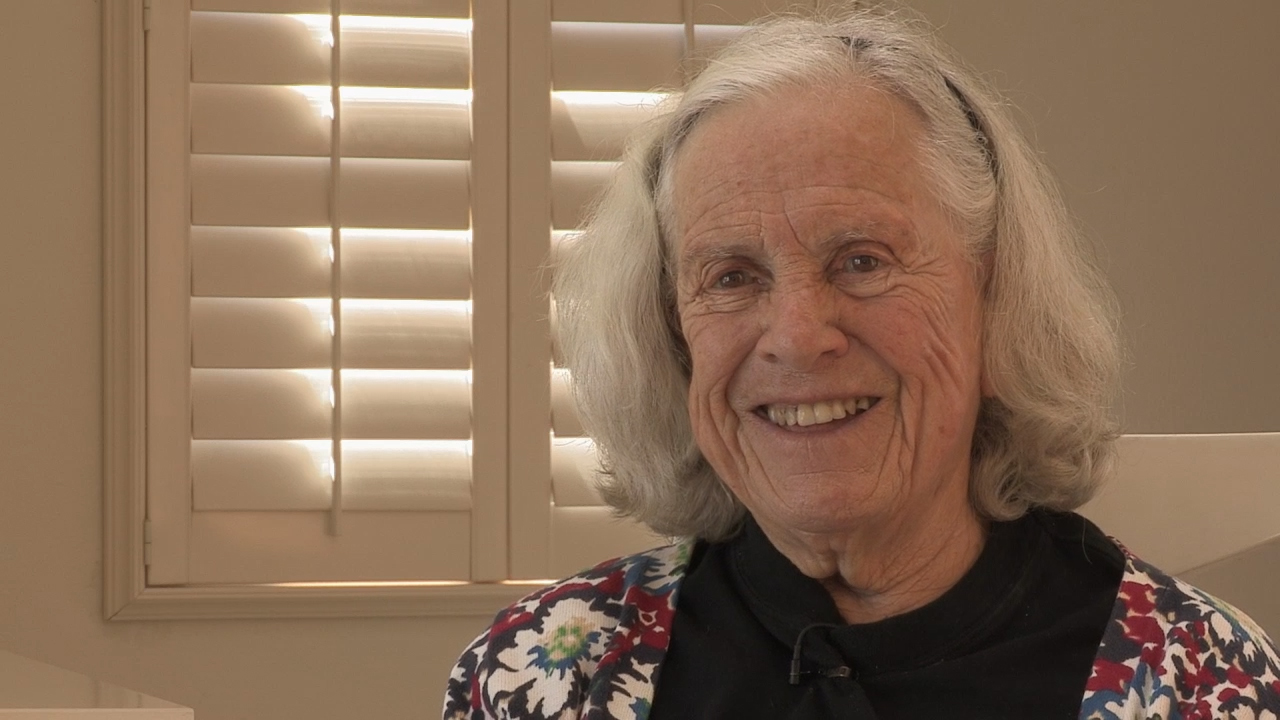My mother was sent to two schools. The first school was a German school because her mother thought the Germans were wonderful people. So it was dreadful because they had lunch every day, it was always the same lunch and it was a brown bean soup served in a soup plate and then the rest of the meal was served in the soup plate without washing it. So they had to finish all of the soup.
Then the second school they sent her to was the... Fairview School which still exists. And that was around 1900 when there was a – I may have mentioned this – there was a... some new thinking of the Jewish religion. And they made a new religion called ethical culture which was not concerned with the deity, but just with how you're supposed to live life. And that was the religion in the house where I was brought up. We did do some Jewish things like have Passover and things like that. But the major thing was ethical culture.
I found out some interesting things to me. I was in Egypt, and we were going to see some pyramids. And we were in a little cart with a donkey or a mule, and the guy was hitting the donkey or mule to get him to go faster. And I said to him, 'Wait a second. I cannot, because of my religion, ride in a car with animals being hit. So just stop and I'll get out and walk'. And he said, 'No, I'll stop hitting the animal'. And he was so pleased. And that really surprised me and pleased me that what they were doing, they didn't want to do that. So I found that more people were kind than it was obvious.
My parents believed that – like any sensible person – that life was hard, so the only thing that you could do about it was laugh. And so they laughed a lot and we all laughed a lot. So it was a good... a good way to deal with it.
My father went painting every Saturday, watercolors and in the summertime it was outside at... whether it was a house by the beach or something like that. In the winter time he got... bought flowers from a florist who was very good at arranging them and he had the flowers.
My father always wanted me to stay home with him on Saturday. But I tried a couple of Saturdays and it took him 15 minutes to get to sleep, to sleep all afternoon. So my mother said, 'You don't have to stay home.'
I normally saw him when I was a child at supper times, because he came home he worked in Manhattan and we lived in Far Rockaway which was about an hour's train drive away. And it was a family rule when he came home, knocked on the door, rang the doorbell that everybody in the family rushed to the front door to welcome and kiss him. That included the dog. The dog would come running. And the dog was always trying to be first.
He wasn't home very much except at supper and on weekends he was painting. But he was a vegetarian. He was a vegetarian because he did not think it was ethical to kill an animal to eat it. We don't need to eat animals. So that was a thing which was rare about him. Even when he went to restaurants they would say, it's only a little gravy on this. No, no, jello is not vegetarian. It's made from hooves. And so he wouldn't need it.
And he was a sick man from a very young age, with high blood pressure. He was one of the... He finally went to Mayo Clinic. You know Mayo Clinic? He finally went to Mayo Clinic and they put him on a new diet that had been invented. No salt, in fact, nothing but fruit and rice. And that brought his blood pressure down. So for a few months he felt better but then he died. They told him when he was at the clinic that a man in his condition had not long to live.





